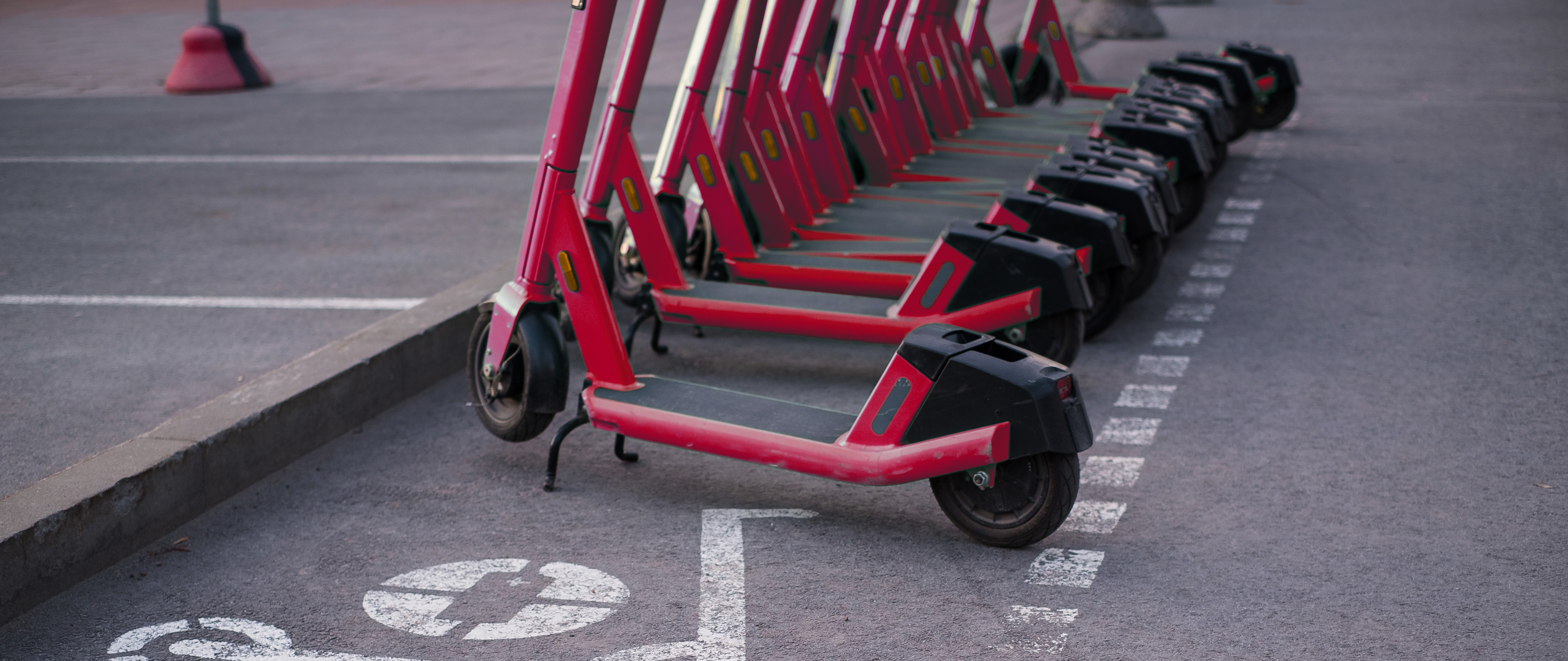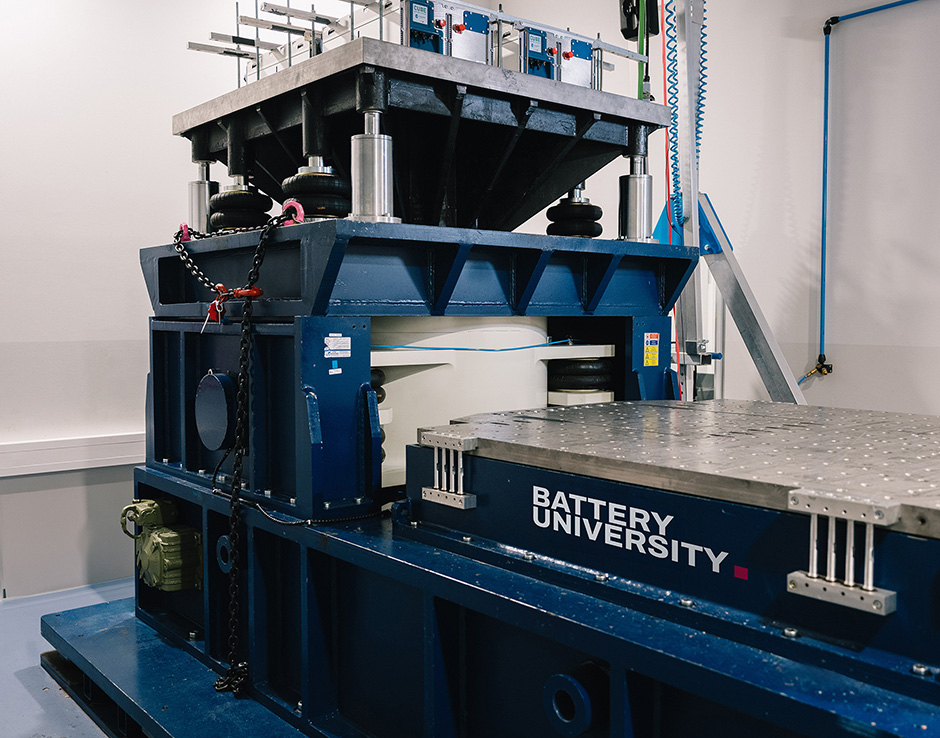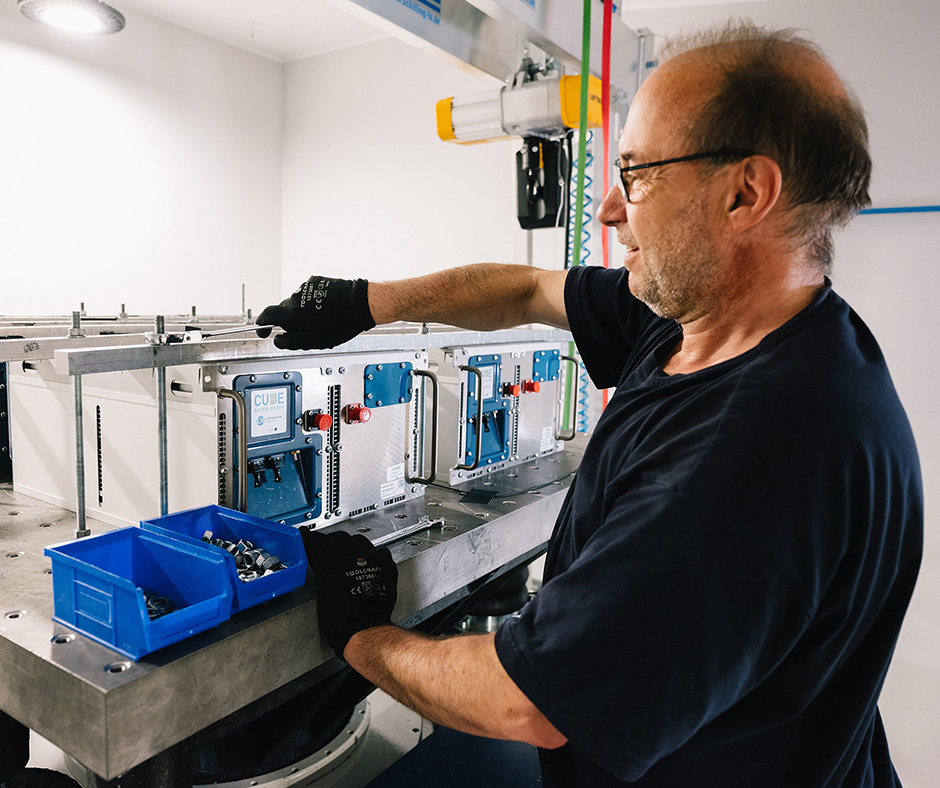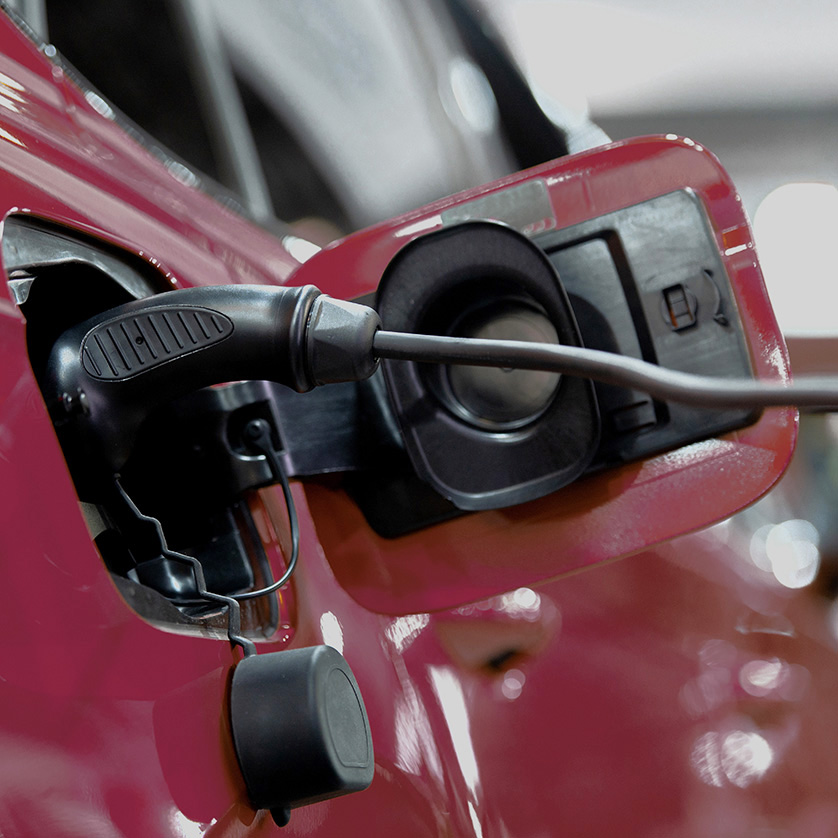UL 2271

IMPORTANT IN BRIEF
UL 2271
UL 2271 is a safety standard that was developed specifically for batteries in light electric vehicles (LEVs). It specifies comprehensive requirements for the design, manufacture and testing of lithium-ion batteries to ensure their safety in operation. Since its introduction by Underwriters Laboratories (UL) in 2013, the standard has established itself as the central standard for the certification of LEV batteries.
Batteryuniversity is an independent, accredited testing laboratory with extensive expertise in the safety assessment and certification of lithium batteries. We already perform most UL 2271 tests in-house, from mechanical stress analysis and electrical testing to environmental simulations such as vibration, temperature fluctuations and water contact. Our test methods ensure that your batteries meet the strict safety requirements and can easily obtain UL 2271 certification.

Why we are the right partner for your UL 2271 certification
Recognized test center
As an independent and accredited testing laboratory, we specialize in the testing and certification of lithium batteries for light electric vehicles (LEVs).
Many years of experience
We have been active in battery testing for over 15 years and have extensive experience with safety standards for lithium-ion batteries. Our experts know the requirements of the UL 2271 standard in detail and will reliably guide you through the entire testing and certification process.
Broad testing performance
We already offer most of the tests for UL 2271 certification at our site. Our laboratory carries out mechanical, electrical and safety-related tests, including short-circuit, overcharge, vibration and thermal tests. This is how we ensure that your batteries meet all standard specifications.
Rapid market entry
Our optimized test procedures in cooperation with UL enable fast and reliable certification in accordance with UL 2271, allowing you to bring your products to market without unnecessary delays and secure a competitive advantage.
Modern testing technologies
Our laboratory uses state-of-the-art testing equipment to analyze LEV batteries in detail. We simulate realistic operating conditions and test the batteries for mechanical load capacity, temperature behavior and electrical safety to ensure the highest quality standards.
Customized test methods
Every battery is unique, which is why we tailor our tests to the specific requirements of your lithium battery. Whether e-bikes, e-scooters, golf carts or other LEV applications, we ensure standard-compliant and customized testing.

Why UL 2271 is crucial for the safety of LEV batteries
Lithium-ion batteries are at the heart of many light electric vehicles (LEVs) such as e-bikes, e-scooters, golf carts and electric motorbikes. However, due to their high energy density and complex chemical composition, they pose a certain safety risk, especially in the event of improper handling or technical defects. UL 2271 was developed to minimise precisely these risks. It specifies strict safety requirements for the design, manufacture and testing of LEV batteries. The standard takes into account potential hazards such as thermal runaway, overcharging, deep discharge, short circuits and mechanical stresses.
Manufacturers who have their batteries certified to UL 2271 not only demonstrate a high level of commitment to safety, but also benefit from a decisive competitive advantage: certification creates customer confidence and facilitates market access, especially in the USA. As an experienced testing laboratory, we will guide you through the entire certification process. Our comprehensive test procedures simulate real operating conditions and ensure that your battery fulfils the strict requirements of UL 2271.
The path to your UL 2271 certification with us as your partner
UL 2271 certification ensures that lithium-ion batteries for light electric vehicles (LEVs) fulfil strict safety requirements. The process begins with a detailed analysis of the battery, during which our experts assess the design, technical specifications and intended area of use. Based on this information, the specific tests required for certification are determined. In the next step, the battery is subjected to a comprehensive series of tests.
Once the tests have been completed, the results are documented in detail and summarised in a test report. After successful testing, UL 2271 certification is issued by UL, confirming the safe use of the battery. Even after certification, we remain at your side as your partner. If standard specifications change or new safety requirements are added, we will inform you at an early stage and support you in continuing to bring your products onto the market in compliance with the standard.
FREQUENTLY ASKED QUESTIONS & ANSWERS
UL 2271 specifies safety requirements for the design, manufacture and testing of lithium batteries for light electric vehicles (LEVs). It is intended to minimise risks such as thermal runaway, overcharging, deep discharge, short circuits and mechanical and electrical loads. The standard also includes specifications for labelling the batteries and requirements for their safe transport.
UL 2271 applies specifically to lithium-ion batteries in light electric vehicles (LEVs) such as e-bikes, e-scooters or golf carts. UL 2580, on the other hand, focuses on high-voltage batteries for electric vehicles (EVs) with significantly higher performance requirements. While both standards deal with battery safety, UL 2580 is more focussed on larger vehicles with more complex battery management systems.
For UL 2271 certification, batteries must undergo a variety of tests to ensure their safety under real-life conditions. These include thermal stability tests, which simulate how the battery behaves when it overheats. Mechanical tests such as vibration, drop and crush tests check the battery's resistance to physical stress. Electrical tests include short circuit, overcharge and deep discharge tests, which ensure that the battery does not fail even under faulty charging conditions. In addition, the water immersion test checks whether the battery can withstand the effects of moisture. These comprehensive tests guarantee that lithium batteries for light electric vehicles (LEVs) fulfil the high safety requirements of UL 2271.
UL 2271 applies to lithium-ion batteries used in light electric vehicles (LEVs). These include e-bikes, e-scooters, golf carts, electric motorbikes, wheelchairs, lawn mowers and ride-on floor cleaning machines. The standard was developed to ensure the safety of these batteries in various applications.
UL 2271 certification confirms that a battery fulfils the strict safety requirements for LEVs. This offers several advantages: higher product safety, reduced liability risks and improved customer confidence. In addition, certification is often a prerequisite for market access in the USA and can help to avoid product failures and recalls.
As a recognised testing laboratory, we have many years of experience in battery testing. With state-of-the-art testing technology, customised test methods and an efficient certification process, we enable our customers to access the market quickly and smoothly.
INFORMATION ABOUT THE AUTHOR
Alexander Roth
Alexander Roth is head of the test laboratory at Batteryuniversity and an expert in the testing and certification of lithium-ion batteries.







